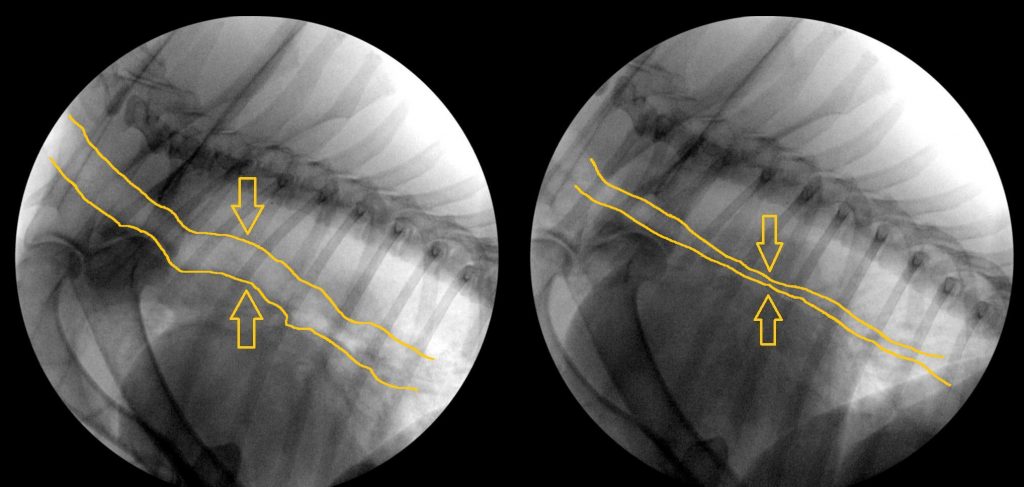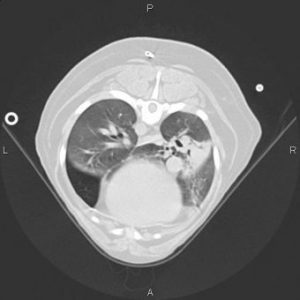Pulmonary hypertension is a type of high blood pressure that affects the lungs of both animals and people. When tiny vessels in the lungs become narrowed or blocked, it becomes harder for blood to flow through and can cause the heart to weaken or fail.
Now, researchers at the University of Missouri have found that identifying respiratory diseases causing pulmonary hypertension can lead to improved health outcomes.
Carol Reinero, professor of small animal internal medicine in the College of Veterinary Medicine, was a member of a team that studied 47 dogs with pulmonary hypertension caused by respiratory disease. The goal was to better characterize the types of underlying respiratory disorders in dogs causing high blood pressure in their lungs and to identify prognostic variables.

One of the respiratory conditions that can cause pulmonary hypertension is tracheal collapse, where the dog’s windpipe becomes narrow and leads to coughing and breathing issues. In these fluoroscopic images, the normal diameter of the trachea is seen on inspiration (left) and nearly collapses on exhalation (right).
“Understanding the diseases that contribute to pulmonary hypertension can lead to more tailored therapy approaches and help identify which medications are likely to be most beneficial,” Reinero said. “As many of these dogs have multiple issues, a thorough evaluation is needed to address the underlying problems causing the pulmonary hypertension.”
Reinero collaborated with veterinary cardiologists Kelly Wiggen and Stacey Leach, who performed an echocardiogram – an ultrasound of the heart – on the dogs in the study to identify pulmonary hypertension.
“This is a great example of interdisciplinary teamwork, as MU’s College of Veterinary Medicine has both the specialized expertise and technical abilities to conduct comprehensive evaluations that ultimately lead to more thorough diagnoses and individualized treatment plans,” Reinero said. “We see people bring in their dogs from all over the country, which reflects our strength in the area of respiratory medicine.”

Computed tomographic (CT) scans can give much more detailed information than standard x-rays about the types of lung disease present, as shown in this CT image from a dog with three different respiratory disorders.
In both animals and humans, untreated pulmonary hypertension can lead to death. Recent research by the same investigators found that tadalafil, the active drug in Cialis, effectively treats pulmonary hypertension in dogs by dilating pulmonary vessels. The medicine, which is consumed by dogs in the form of a pill, only needs to be taken once a day and was the sole predictor of survival in the study.
“Our goal is to make a difference by improving the quality of care for animals,” Reinero said. “Doing clinically-relevant research means not just helping individual dogs, but also finding new knowledge that other vets can ultimately use to improve the quality of care for dogs worldwide.”
“Pulmonary hypertension secondary to respiratory disease and/or hypoxia in dogs: Clinical features, diagnostic testing and survival” was published in The Veterinary Journal.
Story courtesy of the Mizzou News Bureau.
Contact: Brian Consiglio, 573-882-9144, consigliob@missouri.edu



